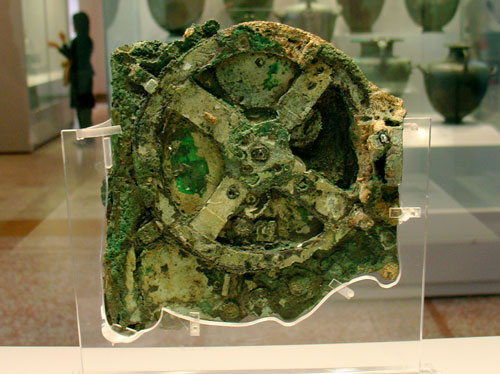Scientific truth is established by the Scientific Method, and confirmed by successful, scientific predictions.Total Science wrote:The Earth was not the center of the universe for 1,500 years.
The best that Ptolemy and his successors could achieve, in establishing scientific truth, was apparently better than what the Heliocentrists could achieve for 1,500 years. There's nothing wrong with the scenario of humans believing in Geocentrism, if this system offers the soundest results. But, as I said, science is progress. Therefore, paradigms change, regularly.
Total Science, you do know that even Heliocentrism has been superceded,right?
Total Science wrote:So you think the pyramids were built with magical spells and sorcery?
No, they were built with technological knowledge, and not scientific knowledge, which is the same way that European cathedrals were built. The ancients did not have the laws of gravity and EM, and ,therefore, could not have benefited from these. (And, of course, they were even-more not in possession of nuclear laws.) Brute force and cantilevering carried the day.
Total Science wrote:Is this what you call mindless technology?
A very simple mechanical calculator, that works manually, is not a scientific achievement. What laws of nature have been elucidated by it? None. Frankly, it's not much of a technological achievement, either. The application of gear-ratios is not worth crowing about.
Jet-propulsion is the result of true scientific inquiry. Without the laws of modern chemistry, we would not know the concept of jet-propulsion.Total Science wrote:"This [Antikythera Mechanism] was tantamount to finding a jet airplane in the tomb of King Tut." -- David H. Childress, author, 2009
Total Science wrote:This contradicts your debunked claim that science didn't exist prior to 1000 A.D.
I said "discoveries" based on the Scientific Method were absent before this time. But, this is only to be logically expected since the Scientific Method was still in its early stages of theoretical development.
Aside from the fact that it is disputed whether Pythagoras ever actually devised any mathematical relations, here we are discussing math, not science -which is the elucidation of the laws of nature. Math is a purely intellectual endeavor; there's no need for a guiding method. Throughout history, many different foundations for math have been laid out, each contributing something important to the overall knowledge of math.Total Science wrote:1. "It was Pythagoras also who carried geometry to perfection [e.g. Euclid Proposition I:47], after Moeris had first found out the principles of the elements of that science, as Aristiclides tells us in the second book of his History of Alexander; and the part of the science to which Pythagoras applied himself above all others was arithmetic." -- Diogenes Laertius, historian, 3rd century
Total Science wrote:4. "Parmenides, too, assures us, that he was the first person who asserted the identity of Hesperus and Lucifer [Venus]." -- Diogenes Laertius, historian, 3rd century
Total Science, do you categorize this as science? What fundamental laws of nature are being elucidated here?
Total Science wrote:5. "... [Pythagoras said] the earth ... is also spherical." -- Diogenes Laertius, historian, 3rd century
Actually, most near-ancient thinkers believed that the Earth was spherical, for various, obvious reasons. Science never played a role in establishing this belief.
Total Science wrote:7. "And that the moon derives its light from the sun." -- Diogenes Laertius, historian, 3rd century
My response, here, is similar to my last response.
Total Science wrote:8. "Also, that animals are born from one another by seeds, and that it is impossible for there to be any spontaneous production by the earth." -- Diogenes Laertius, historian, 3rd century
Ditto my last response.
Also, it sounds like Pythagoras was anti-evolution. Are you anti-evolution, Total Science?
Ditto, again.Total Science wrote:9. "... [And] that deliberation (nous), and reason (phren), reside in the brain...." -- Diogenes Laertius, historian, 3rd century
Also, this is philosophy, not science.
(By the way, is there a chance that "deliberation" and "reason" reside in another part of the body?
Total Science wrote:10. "But Eratosthenes says, as Favorinus quotes him, in the eighth book of his Universal History, that this philosopher, of whom we are speaking, was the first man who ever practised boxing in a scientific manner, in the forty-eighth Olympiad...." -- Diogenes Laertius, historian, 3rd century
Boxing ?!
Here, "scientific manner" means technique, which is even less inquisitive than technology. Don't even mention true science, which elucidates the fundamental laws of nature, by way of the one-and-only Scientific Method.
-Joe

